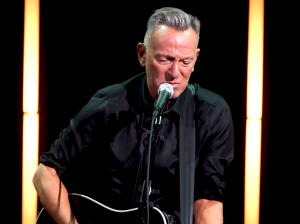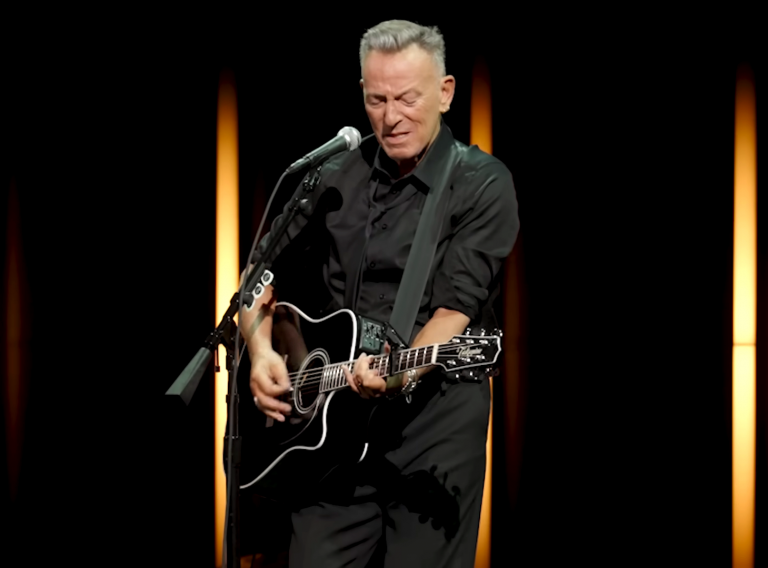At the Academy Museum Gala, the atmosphere shifted from glamorous celebration to quiet reflection the moment Bruce Springsteen took the stage. Surrounded by film stars, musicians, and cultural icons, he chose to perform one of his most emotional songs: “Streets of Philadelphia.”
From the first gentle notes, the room seemed to slow down. Springsteen didn’t need flashy lights or a big band—only his guitar, a soft backing rhythm, and that familiar voice that carries both strength and sadness. The song, originally written for the film Philadelphia, tells the story of isolation, struggle, and dignity. Live, it felt even more personal.

Springsteen’s performance was measured and intimate. He sang with the same husky tone that made the song unforgettable in the 1990s, but there was something deeper in it—experience, age, and an understanding of what the song means to people who have felt alone or misunderstood. Every line sounded like it belonged directly to the audience in front of him.
The crowd stayed silent, not out of politeness but out of respect. Many attendees closed their eyes or leaned forward, taking in every word. When he reached the final repeated phrase — “And you know I was untrue” — the emotion was so heavy you could almost hear the breaths held in the crowd.
When the music faded, the applause came slowly, building into a warm wave of appreciation. It wasn’t wild or loud; it was sincere. In a night full of glamour, Springsteen reminded everyone why great art matters: it speaks to the heart, even in the quietest moments.
This performance of “Streets of Philadelphia” was more than a song at a gala—it was a gentle reminder that behind all the lights and celebration, the human stories we tell are what truly endure.

